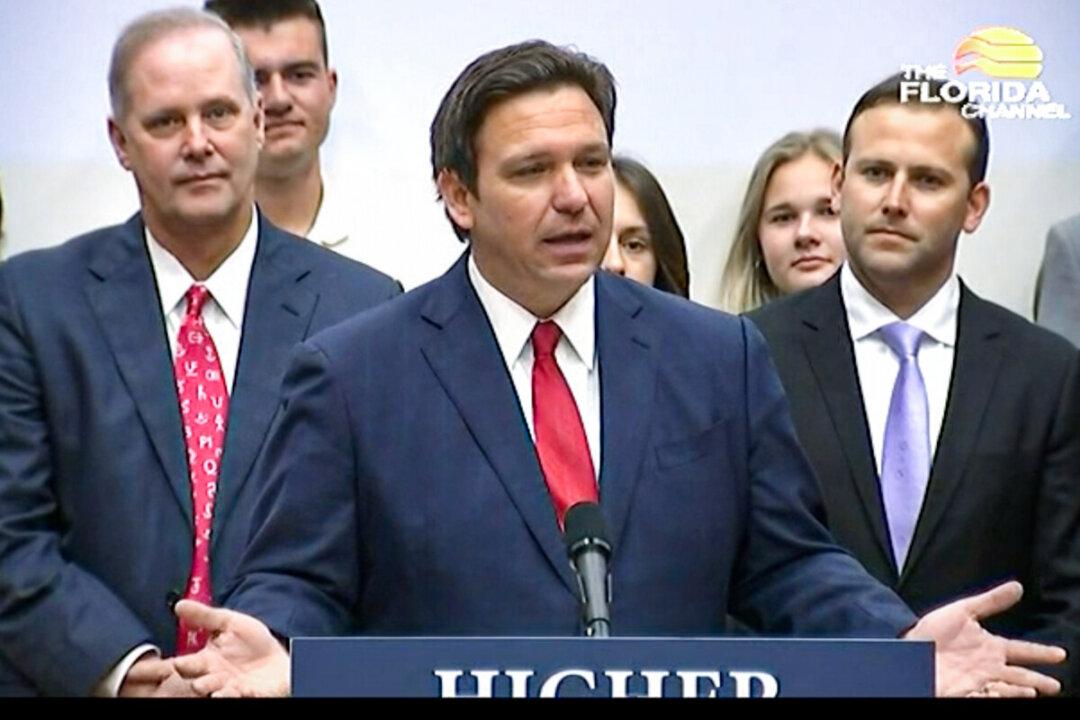During a packed April 25 press conference in Spring Hill, Florida, Gov. Ron DeSantis signed Senate Bill 524 into law, strengthening voting rules in the state and establishing the nation’s first Office of Election Crimes and Security at the Department of State, specifically formed to investigate and prosecute voter fraud.
While most legacy media news reports insist claims of voter fraud in the 2020 election are “unsubstantiated,” “false,” “baseless,” “unfounded,” or outright lies that have been “debunked,” other reports are surfacing with evidence of widespread fraud through ballot harvesting, the process of third-party volunteers collecting ballots and delivering them to local election offices or ballot drop boxes.





